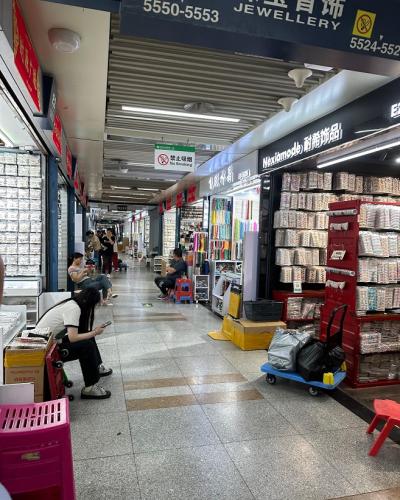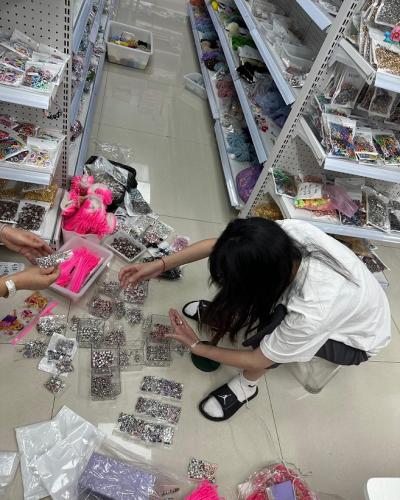Of all the cities we traveled to within Zhejiang province, the one that was the most different from what I had imagined was Yiwu. Yiwu is known as “the world’s capital for small commodities” and boasts China’s largest wholesale market. Within this market, I was expecting to be the only foreigner around, as I had experienced in many of the places we had explored in Beijing. I quickly realized that I was greatly mistaken. At every twist and turn, I found other foreigners trying their hand at negotiating and buying in bulk, likely intending to resell in their respective countries.
As part of my homework for my Chinese course, I decided to interview some of the shop owners and customers whom I had taken a particular interest in. I had the privilege of speaking with two Ghanaian sisters, who I saw buying large quantities of jewelry at a small shop. They told me that they knew of many others in their community in Ghana who also frequented this particular international market in Yiwu. While they mentioned the communication barrier was still quite challenging for them, they had visited Yiwu so often to resell at their jewelry shop in Ghana, that they were able to understand a generous amount of Chinese. They also mentioned that it is a common goal of other Ghanaians to be able to afford a plane ticket to China so they may also have a chance at building their own small businesses in Ghana.
In the same realm of the reselling business, we met with a shop owner who had student interns live streaming on TikTok to sell bundles of small accessories to American customers for a stark upcharge. Seeing these young girls sitting on the floor, rapidly tending to the comments on their streams, charismatically organizing their bundles, was an extremely full circle moment for me. Back in the U.S., I often watched these Tiktok streams, enticed by the fast-paced and energetic nature of the hosts. Looking back on this experience, I realized I had been watching these streams without ever considering the hosts’ financial circumstances. I found their method of business to be a form of entertainment for me that I could mindlessly watch when I stumbled across their streams. Standing directly before these young girls in Yiwu, who had sacrificed a semester of college classes to be able to attain a paid internship and earn a barely livable salary, was extremely eye-opening. This experience made me reflect on all of the experiences I have taken for granted, as well as the privilege it is to attend university without feeling the burden of being responsible for my own finances.
While we had many experiences witnessing splendor and luxury throughout the prosperous companies we visited in Zhejiang, the interactions that struck me the most in Yiwu were those that allowed me to reflect on my own privilege and ignorance. These were the raw and vulnerable moments that most profoundly shaped my perspective as a student of China. Witnessing these particular struggles allows me to be a true student of China, not just one who appreciates the development and growth of this incomparable nation, but one who recognizes the stories and journeys of those who are not yet directly benefiting from China’s national advancement.



